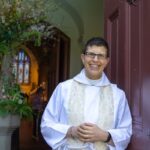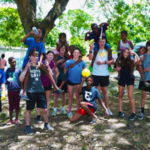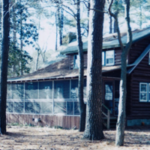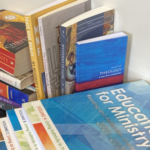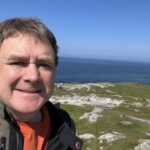This website uses cookies so that we can provide you with the best user experience possible. Cookie information is stored in your browser and performs functions such as recognising you when you return to our website and helping our team to understand which sections of the website you find most interesting and useful.
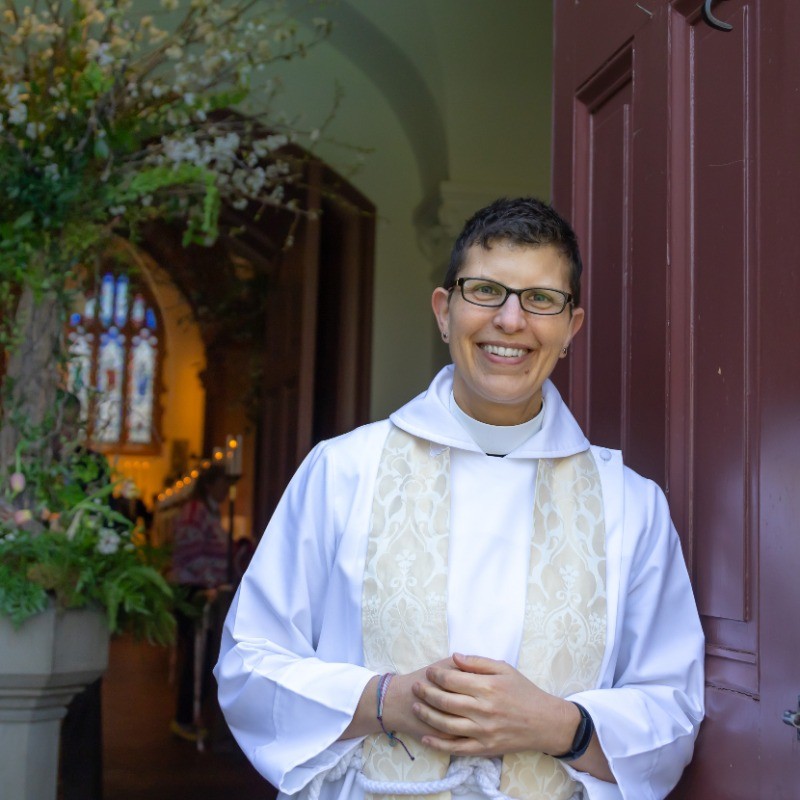
My Journey in the Episcopal Church
as a
Person in Recovery
Photo credit: Deborah Webb | deborahwebbphotography.com
I lived two seemingly distinct journeys that turned out to be intertwined like the roots of an old tree. My recovery from alcohol addiction and my faith journey both run deep, can be gnarly at times, go this way and that, but at the end of the day, they are grounded in the soil of God’s unending grace, mercy, and love. These two journeys are full of paradox ― a paradox that reminds me God is always calling me, calling all His creation, to be on a journey of uncovering, discovering, and recovering who we are so that we can be who God calls us to be.
Early on in my recovery journey, a 12-step sponsor shared four paradoxes with me. Over the past 16-and-a-half years, these paradoxes have become the foundation of how I understand what it means to live a life in recovery and what it means to live with God, through Jesus Christ.
- We suffer to get well.
- We surrender to win.
- We die to live.
- We give away to keep.
We Suffer to Get Well
As a child, I was drawn to God. I grew up in The Episcopal Church, going each Sunday with my Grandma Carpenter. I took to the rhythms of the Episcopal liturgy like a fish takes to water; they were a balm for my anxious little soul. The time that I spent with my grandma at church are some of my most precious memories.
My connection to God and church began to fade in high school, which is also the time I began to consume alcohol. In the beginning, drinking was fun. It was something that many of my friends did; it seemed like a rite of passage. It also helped me feel more comfortable in my skin and avoid feelings I did not want to acknowledge or know how to process. Over the next almost two decades, my drinking progressed like any untreated disease progresses — it became more frequent, more pronounced, and more harmful. As my drinking increased, my connection to God, myself, and the world decreased.
By the time I was in my early 30s, everything on the outside of my life looked great. I had received a promotion at work, bought a new car and home, had plenty of money in the bank, a partner, and a large group of friends. And at the same time, on the inside, I was emotionally and spiritually decaying. I felt like a shell of a person who could crack at any moment. I didn’t recognize it at the time, but paradox was rearing its head. I had all the trappings of how I understood society to define success, yet on the inside, I felt completely and utterly alone and defeated.
On January 21, 2007, I cried out to God for help. The answer I received was to call a friend whom I knew was in recovery from alcohol addiction. We talked for several hours. She listened to me. She never judged me. She told me that there was another way to live. She suggested I go to work the next day and find a 12-step meeting to go to in the evening. We suffer to get well.
We Surrender to Win
On January 22, 2007, I did exactly what my friend told me to do. I attended a 12-step meeting that evening and miraculously I did not drink that day. I know without a shadow of a doubt that God’s grace and my willingness intersected that day. I took to the 12-step program as I had taken to church as a little kid; a fish who knows it needs water to survive. I heard things like, “keep coming back,” “one day at a time,” “let us love you until you can love yourself” and “the only thing you have to do perfect today is surrender and not take a drink.”
Up until this point in my life, I thought surrendering was a sign of weakness. What I was shown by this fellowship of people was something completely different. I realized that if I were willing to surrender to the fact that I was powerless over alcohol ― that I had lost the ability to safely drink ― I could embark on a journey that would allow me to cultivate an honest and loving relationship with God, myself, and the world. We surrender to win.
We Die to Live
I was told that if I wanted to maintain my recovery, I would need to grow and change. I would need to let some things die so that new things could be planted. I asked someone to share their experience, strength, and hope of recovery with me and to take me through the 12-step program. I’m grateful to say this person is still walking with me on my recovery journey; our relationship is one of the closest I have in my life. As I continued working the 12 steps, my foundation with God began to crystallize, and the world opened in ways that I could not imagine. I began to uncover, discover, and recover who I was. I fell in love with God all over again while attending 12-step meetings in church basements and parish halls. Within my first year and a half in recovery, I heard whisperings from God of a call to ordained ministry.
As the whisperings from God continued, so did the work with my 12-step sponsor. She helped me learn many things, including the history of the 12-step program. I was elated to learn about the Rev. Samuel Shoemaker, an Episcopal priest, who was credited by the co-founders of the 12-step movement with developing the program’s spiritual principles.
Four years into my recovery journey, I recovered my relationship with The Episcopal Church. I began attending a 12-step meeting each morning that met at the Church of the Ascension in New York City. One day a fellow from the meeting invited me to a 12-step Recovery Eucharist at the church. She explained it was a service that was grounded in Episcopal liturgy and integrated the 12-steps of recovery. I experienced a moment of clarity and realized that God was guiding me back to the church of my youth to move me forward with those whisperings about ordained ministry. At the end of the 12-step Recovery Eucharist, I spoke with the priest who led the service, the Rev. Shelley McDade, and told her about the whisperings I had been hearing from God.
I began attending Sunday services at Church of the Ascension during Holy Week 2012. I went to service each day, sat in the back of the church and cried tears of joy; I knew God was bringing me to a church home. I began to meet regularly with Mother Shelley to discuss the whisperings from God. In early 2013, she affirmed my desire to begin a discernment process with the church.
It took several years for my discernment process to unfold. I had a significant illness in 2013 that put things on hold until early 2015. When the discernment process resumed, I found that it was a process of ongoing surrender and letting things die so that new things could grow. Discernment helped me to see that life in recovery and life with God are a lot like the scene from Indiana Jones and the Last Crusade. Indy had to step out in faith so that the bridge would appear; so did I.
In 2019 I was made a postulant for holy orders in the Episcopal Diocese of New York. I began seminary in the autumn of 2019. It was a whole new season of letting things die so that new things could be planted. I was ordained a deacon on March 12, 2022, joined Christ Church Christiana Hundred, Wilmington, on July 1, 2022, and on September 24, 2022, I was ordained a priest. Recovery and faith journeys reflect what happens at Baptism, we are called to die to one life, so that we can live another life ― life in and with God. We die to live.
We Give Away to Keep
One of the first questions my 12-step sponsor asked me when we began working together was, “Stacey, will you give this away as it was given to you?” Without hesitation I said yes. A year and a half later when I heard my first whisperings of a call to ordained ministry, I heard the voice of Jesus saying, “Stacey, you are called to preach, teach, and pastor so that you can give away what I have so freely given to you.”
As a person in recovery and as an Episcopal priest, I believe I am here to share the gifts I have received which are embedded in the intertwined roots of my life in recovery and life in and with God. As it is prayed at every priestly ordination service, I pray that I can point others to know the saving power of God’s love, grace, and mercy so that they can uncover, discover, and recover who they are and who God is calling them to be.
“… let the whole world see and know that things which were cast down are being raised up, and things which had grown old are being made new, and that all things are being brought to their perfection by him through whom all things were made, your Son Jesus Christ our Lord; who lives and reigns with you, in the unity of the Hosy Spirit, one God, forever and ever. Amen.” (BCP p. 528).
In this video, Stacey talks about her journey from recovery to becoming a priest.
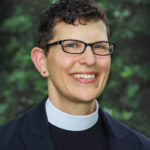
The Rev. Stacey Carpenter is a priest associate at Christ Church Christiana Hundred, Wilmington. She graduated with her Master of Divinity from the Seminary of the Southwest in May 2022. Stacey has a passion for liturgy, formation, connecting church and community, and the intersection of faith and healing.
Christ Church Christiana Hundred is pleased to offer a 12-Step Recovery Eucharist on Sunday, September 24, at 4 PM in the Church. This service combines ancient scripture and centuries-old liturgy with the 12 steps of addiction recovery, celebrating the gift of recovery, inviting us to strengthen our recovery practices, and commending to God’s care those in need of healing who haven’t yet found their way into recovery. For more information, click here.
